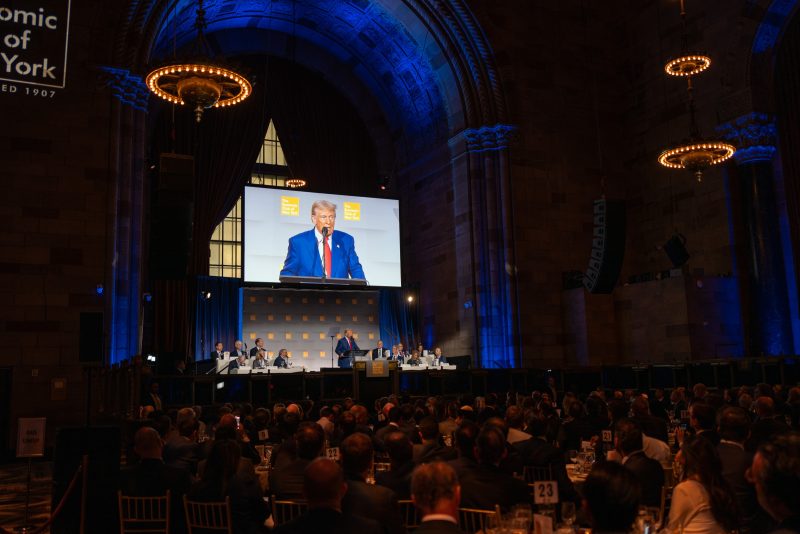In a recent turn of events, the GOP appears to be downplaying the increasingly extreme threats made by former President Donald Trump to global trade. Despite Trump’s inflammatory rhetoric and erratic behavior in relation to trade policy, some members of the Republican party seem hesitant to acknowledge the potential implications of these actions on the international economic landscape.
Trump has long been known for his tough stance on trade, often prioritizing protectionist measures and taking a combative approach to negotiations with key trading partners. His administration implemented tariffs on a wide range of products and engaged in high-stakes trade disputes with countries such as China and Mexico. While some of these actions were aimed at addressing what Trump deemed unfair trade practices, they also risked disrupting established trade relationships and sparking retaliatory measures from other countries.
One of the key concerns surrounding Trump’s aggressive trade tactics is the potential for escalating tensions that could lead to a full-blown trade war. The imposition of tariffs and other trade barriers can have wide-ranging effects on global supply chains, consumer prices, and economic growth. By threatening to upend these established patterns of trade, Trump’s actions raise significant uncertainties for businesses and investors around the world.
Moreover, Trump’s anti-trade rhetoric has not been limited to traditional economic allies and adversaries. He has also targeted international organizations such as the World Trade Organization (WTO), questioning their legitimacy and pushing for a more unilateral approach to trade policy. This could undermine the rules-based global trading system that has been in place for decades, potentially leading to increased volatility and fragmentation in the global economy.
Despite the potential risks associated with Trump’s trade policies, some GOP members appear to be adopting a more passive stance towards his increasingly extreme threats. This could be attributed to a variety of factors, including political considerations, ideological alignment, or a desire to maintain party unity. However, by downplaying the potential consequences of Trump’s actions, they may be inadvertently enabling his disruptive behavior and undermining efforts to promote a more stable and predictable global trading environment.
In conclusion, the GOP’s response to Trump’s increasing threats to global trade highlights the complex dynamics at play within the party and the broader political landscape. While it is important to address legitimate concerns about trade imbalances and unfair practices, it is essential to do so in a measured and constructive manner that promotes cooperation and mutual benefit. By downplaying the risks posed by extreme trade policies, the GOP risks exacerbating tensions and jeopardizing the long-term stability of the global economy.
